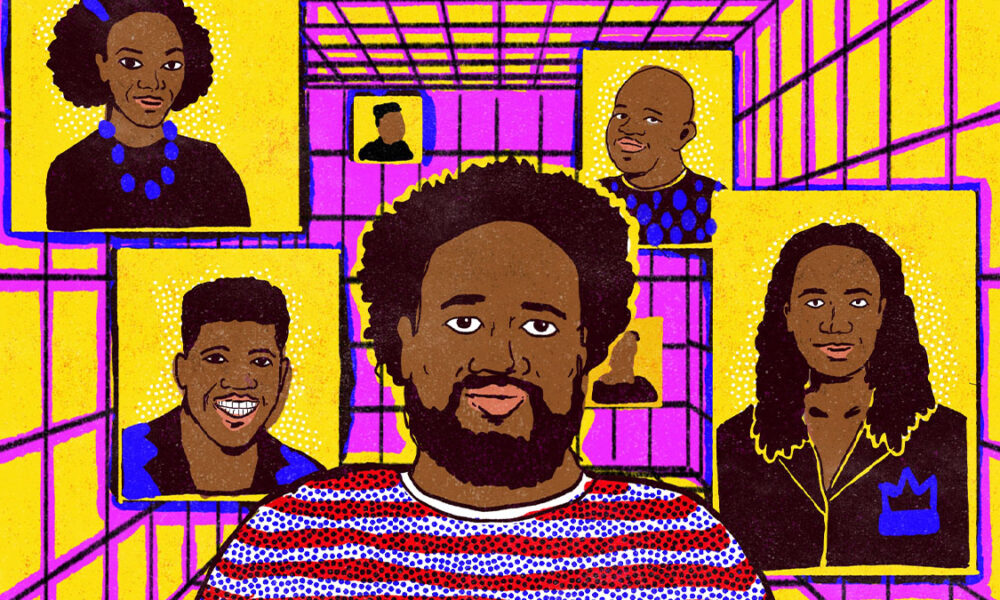André Brock, an associate professor of media studies at the Georgia Institute of Technology, drew on the connections between Blackness, social media platforms, and Western technoculture in a webinar held on Jan. 12. The lecture was part of the Feminist and Accessible Publishing, Communications, and Technologies speaker series, which was founded by Gender, Sexuality and Feminist Studies Faculty Lecturer Alex Ketchum.
During the webinar, Brock discussed his 2020 book Distributed Blackness: African American Cybercultures, which is based on 15 years of research on Blackness and digital spaces, ranging from weblogs and periodicals to video games. The book argues that Black communities have been ardent participants and builders of a distinct and recognizable cyberculture.
In his introductory remarks, Brock explained that while his goal with Distributed Blackness was to reframe the agency of Black communities, he thought it was essential to first acknowledge the limits Western technoculture poses in the digital medium.
“My aim in that book was to unpack what Black technology use, or Black technoculture, would look like from the perspective of Black folk,” Brock said. “In doing so, however, I had to consider the context of what Black technoculture is gestated, that is, the white Western world and Western technoculture.”
Brock observed that while many name the trio of Jeff Bezos, Elon Musk, and Richard Branson as the tech pioneers that will lead humanity into a bold era of space exploration, they have in fact only proved to be masters of the venture capital game. Instead, he sees these men as building a post-human and surveillance-state that goes hand-in-hand with a harmful culture of technophilia.
“There are a multitude of examples of technophilia to work with, whether it is the genital waving exercise of the three billionaires to see who could get to the outer reaches of lower reach orbit, or the current fascination with Web 3 and NFTs,” Brock said.
In the early days of the internet, systemic barriers such as high costs and sporadic broadband availability prevented Black communities from accessing online networks and resources. But by leveraging the tools they could muster, Brock argues, these communities were able to build an expansive and dynamic online space to call their own.
In considering viable solutions to what Brock terms “weak-tie online racism“—racism that is enacted indirectly through digital networks of social interaction—Brock concluded that “online harms” cannot be fixed by technology.
“How do you fix this though? I don’t know if it can be fixed,” Brock said. “I’m wary of technical solutions to online harms or even the idea that ethics will fix the problems of technoculture [….] Perhaps, instead, we should be talking about a moral code of harm reduction when deploying complex algorithmic solutions to social problems.”
Following the event, Ketchum underscored the relevance of Brock’s book in light of McGill’s temporary return to remote teaching.
“[Brock’s book] is vital during a time when we are so online,” Ketchum wrote. “As we begin Winter 2022 on Zoom again, Brock’s work highlights the racism embedded in our digital technologies, which, as Brock explains, isn’t just a glitch.”
Madi Bothelo, U3 Arts, enjoyed the webinar, remarking on the importance of the conversation Brock has spurred.
“I feel like most people in the tech industry avoid speaking about race, but the relationship between the two has a layered history worth studying,” Botelho said in an interview with the Tribune. “If we can continue at least having this dialogue, maybe people can start intervening in the process of new and developing technologies.”









